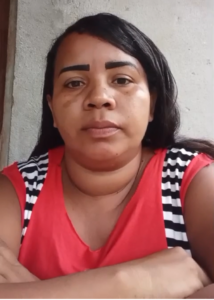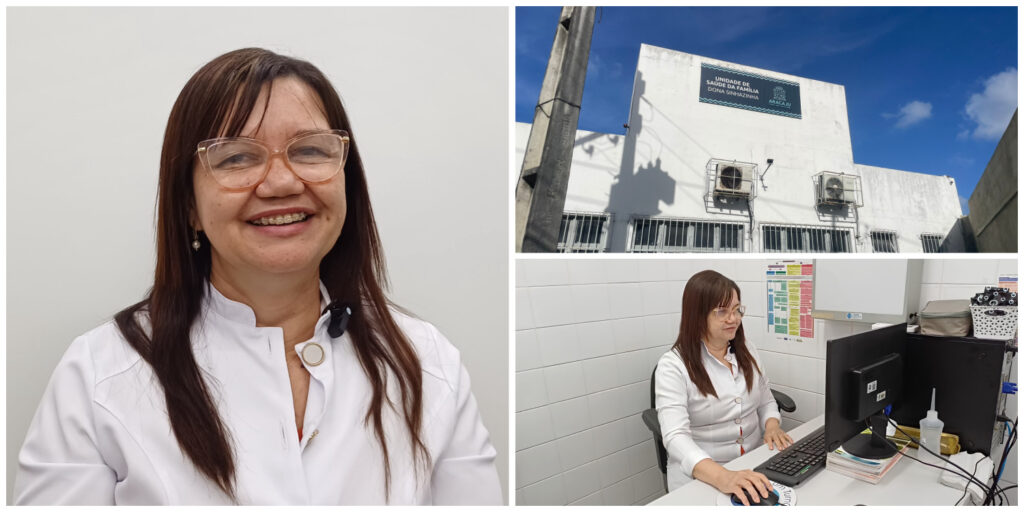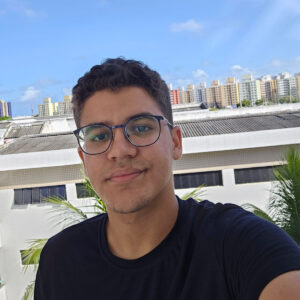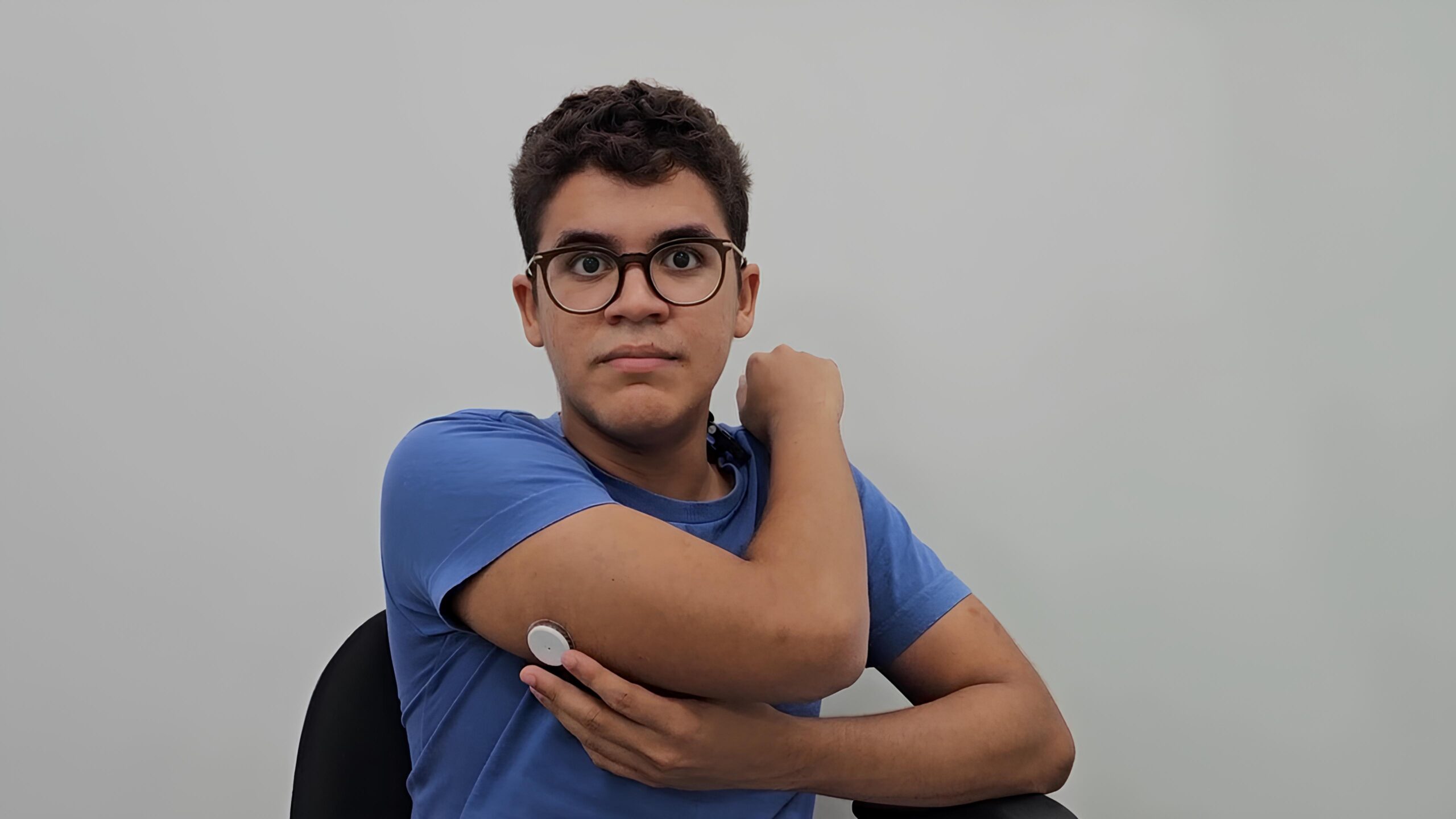Gisele Santos lives the rural community of São Tomé in northern Brazil. She still remembers the moment she realized something was wrong: the headaches, the insomnia, the pain—her body was sending signals she couldn’t ignore. She was later diagnosed with diabetes.

Gisele Santos’ story highlights the urgent need for better access to diabetes care in rural Brazil. Photo credit: Elisabete Pereira – Amapá, Brazil, February 2025
“I had my blood glucose tested, and it was 540,” says Santos. “The doctor wanted to hospitalize me, but I was too far from the city.” Instead, she started insulin and changed her diet, hoping to stabilize her condition. “It wasn’t easy. I cried a lot. But I had to take care of myself.”
Many rural communities in Brazil have extremely limited access to specialized diabetes care. Gisele’s story is not unique. Millions of people across the country are living with diabetes; and many, particularly in rural communities, face serious barriers to diagnosis, treatment and support.
Diabetes: a Growing Crisis with Uneven Access to Care
Diabetes is a leading cause of death and disability in Brazil, affecting an estimated 16.8 million people. But diagnosis and treatment vary widely across regions. In rural communities, primary care providers substitute for endocrinologists (diabetes specialists), managing complex diabetes cases with little training or support.
This gap in care contributes to preventable complications, including blindness, kidney failure and amputations. A 2019 national health survey found that fewer than half of diabetes patients received basic foot or eye exams—critical steps in preventing severe outcomes.
ECHO Telementoring Brings Specialist Support to the Front Lines
To address this disparity, in 2023 the Federal University of Sergipe launched the Diabetes Mellitus ECHO Program. Developed in partnership with the Continuing Education Center of the Aracaju Municipal Health Department and the Lagarto Municipal Health Department, the program is part of the ongoing training offered to primary care professionals in Aracaju and Lagarto. Participants receive continuing education credits as part of their professional development.
Project ECHO connects primary care providers with diabetes specialists through free, virtual training sessions. More than a one-off webinar, the “all-teach, all-learn” ECHO Model connects health workers across Brazil and other parts of Latin America as a community of practice with ongoing mentorship where they learn, collaborate and improve their care practices.
“Diabetes is complex, and many health professionals in rural areas don’t have access to the latest treatments and guidelines,” says Heyne Rejane Costa de Araújo, a nurse at the Dona Sinhazinha Family Health Unit in Aracaju, Sergipe, and an ECHO program participant. “The sessions completely changed the way I approach diabetes care.” With 29 years in primary care, she’s long been on the front lines of chronic disease management. Still, the ECHO sessions offered something new.

Nurse Heyne Rejane Costa de Araújo brings compassionate care to her community in Aracaju, Sergipe, through her work at the Dona Sinhazinha Family Health Unit and Project ECHO. Photo Credit: Franciele Santana – Universidade Federal de Sergipe, Brazil, March 2025
“The most important thing for me was being connected to specialists and discussing real cases from our day-to-day practice. That was incredibly valuable,” says Costa de Araújo. The ECHO telementoring sessions included lessons on diabetes in pregnancy, diabetic foot care, and kidney disease.
“The program was very well structured. Each topic was clear, relevant and easy to apply,” she says. “We even received tools—like a mobile app—to help us manage cases and adjust treatment in real time.”
Nurse Costa de Araújo now uses what she’s learned to educate patients and adjust care plans more confidently. “It’s like having a team of specialists by your side,” she said. “It’s changed the way I work.”
A Diabetes Patient Perspective: Arthur’s Story

With guidance from Project ECHO-trained health workers, Arthur manages his diabetes—and is pursuing his dream of becoming a doctor. Photo Credit: Franciele Santana – Universidade Federal de Sergipe, Brazil, March 2025.
For Arthur Vinícius, a 20-year-old medical student with type 1 diabetes, access to informed health care providers has made a profound difference. Diagnosed when he was still a child, Vinícius remembers the challenges he faced in the first years after his diagnosis. “It was hard to tell people. I was afraid of their reaction.”
The process of acceptance wasn’t simple: “Until I found people who really understood what I was going through, it was painful,” he says. But over time, the support of family, friends and a qualified health care team helped transform his journey.
Today, Vinícius receives his medication free of charge at a health care center in Sergipe, where he is supported by a multi-professional team – many of them trained by Project ECHO. With this support, Vinícius has learned to adapt his diet, organize his insulin schedule and identify signs of hypo- and hyperglycemia on a daily basis.
In addition to clinical control of his diabetes, Vinícius exercises regularly, counts carbohydrates and has mental health support. “Receiving a chronic diagnosis in childhood isn’t easy. Changing your lifestyle from an early age takes a lot out of you.”
“The health care providers helped me understand how to manage my insulin before soccer games, what signs to look for, even how to use apps to track my glucose,” Vinícius says. “Their support gave me the confidence to pursue medical school.”
Vinícius hopes to become the kind of provider who supports others living with chronic conditions. “Living with a chronic illness always brings consequences,” he says. “But it’s not the illness that defines me.”
Telementoring Training Translates to Better Care
The ECHO Model is designed to democratize access to specialized knowledge. By mentoring local health professionals, it multiplies the reach of experts and strengthens care at the community level.
In Sergipe, they’ve already seen patient outcomes improve: more cases managed locally, earlier interventions, and more providers following clinical guidelines.
A Path Forward for Latin America
The success of the UFS Diabetes Mellitus ECHO program shows what is possible when innovation meets local commitment. What began as a state-level pilot now includes participants from 11 Brazilian states and beyond, signaling a model that can scale across Latin America.
For health systems facing rising chronic disease burdens, Project ECHO offers a cost-effective, high-impact strategy. And for patients—including Gisele Santos and Arthur Vinícius—it brings the promise of care that is closer, more compassionate and better informed.
“You can’t let diabetes define your life,” Vinícius says. “With the right support, you can live fully and help others do the same.”
To learn more or to get involved, visit the UFS Diabetes Mellitus iECHO.org web page or email the program team.
The growing demand for diabetes specialized care in Latin America has inspired other partners to plan Diabetes ECHO programs: SE-COMISCA in Central America, APROSAR in Bolivia and the Guyana Ministry of Health. Find Diabetes ECHO Programs on iECHO.
Featured Image: Arthur Vinícius uses a blood glucose monitor to help manage his diabetes, part of his journey toward better health with support from Project ECHO. Photo Credit: Franciele Santana – Universidade Federal de Sergipe, Brazil, March 2025.


